


Las 10 mejores alternativas de Phyllo: características, precios y revisión [Actualizado en 2025]
Elegir el software de marketing de influencers adecuado es fundamental en 2025, ya que las marcas confían cada vez más en los datos de primera mano y la automatización para ampliar las colaboraciones con los creadores. Si bien Phyllo ha llamado la atención por ofrecer una capa de API de datos que conecta las aplicaciones con los datos con el consentimiento del creador, muchos usuarios afirman tener problemas con la estabilidad de la integración, la lentitud de la atención al cliente y las limitadas funciones a nivel de campaña en comparación con las plataformas de servicio completo.
Según un informe de 2025 de Grand View Research, se espera que el mercado mundial de plataformas de marketing de influencers alcance 53.900 millones de dólares para 2030, impulsada por la demanda de herramientas de campaña basadas en el rendimiento y automatizadas más inteligentes. Este cambio indica que las marcas se están alejando de las herramientas fragmentadas y las soluciones con muchos desarrolladores, como Phyllo, y optan por plataformas integradas que equilibran la potencia con la facilidad de uso.
Estas son las 10 mejores alternativas de Phyllo que exploraremos en este artículo:
- Héroe influyente
- Rastreador
- Upfluencia
- Captive 8
- Creador IQ
- Auditor de Hype
- Sonríe
- Influenciador de IA
- Influencia
- Flavikon
Por qué buscar alternativas a Phyllo
Estas son cuatro razones específicas por las que los usuarios buscan activamente alternativas a Phyllo:
1. Capacidades limitadas de gestión de campañas
Phyllo se centra en proporcionar datos de creadores autenticados a través de la API, pero carece de las herramientas de gestión de campañas integrales que necesitan las marcas y las agencias. No incorpora funciones de divulgación, flujos de trabajo de aprobación de contenido ni seguimiento del rendimiento, lo que significa que los usuarios suelen necesitar integrar varias herramientas externas solo para ejecutar una sola campaña.
2. Inestabilidad de integración frecuente
Varios desarrolladores y especialistas en marketing informan de problemas con las integraciones de Phyllo que se rompen o requieren un mantenimiento constante. Especialmente cuando trabajan en varias plataformas de creación (como TikTok, Instagram y YouTube), los usuarios notan interrupciones recurrentes en la sincronización de datos, lo que provoca retrasos e información incoherente.
3. Configuración intensiva para desarrolladores
Phyllo prioriza la API, lo que significa que no es plug-and-play. A menos que tengas un equipo técnico para crear paneles personalizados o conectar canalizaciones de datos, la herramienta puede ser abrumador y poco práctico para equipos de marketing que necesitan usabilidad y resultados inmediatos.
4. Tiempos de respuesta de soporte más lentos
Un tema recurrente en las reseñas de G2 es la frustración con el servicio de atención al cliente de Phyllo. Los usuarios mencionan el retraso en las respuestas, la falta de una solución proactiva de resolución de problemas y las limitadas directrices de incorporación, especialmente cuando se producen errores urgentes o errores de API durante las campañas en marcha.
Criterios para sugerir alternativas a Phyllo
Nuestra comparación se centra en varios aspectos clave:
- Cobertura de plataformas de redes sociales: La medida en que cada plataforma es compatible con las principales redes sociales, como Instagram, YouTube, TikTok, Facebook y Pinterest.
- Reseñas: G2/Capterra/Shopify
- Precios y compromisos: Comprender los niveles de costo y compromiso puede ayudar a las marcas a elegir en función de las necesidades de presupuesto y flexibilidad.
- Facilidad de uso (UX/UI): La experiencia general del usuario, incluidos el diseño del panel de control, la navegación y la incorporación, es especialmente importante para los equipos con tiempo o soporte técnico limitados.
- Atención al cliente: Disponibilidad y capacidad de respuesta de los canales de soporte, incluidos el chat en vivo, el correo electrónico, la asistencia de incorporación y la velocidad de resolución de problemas técnicos o de facturación.
- Características principales: Incluye funciones de descubrimiento de personas influyentes, divulgación, CRM, elaboración de informes, regalos, UGC y recopilación de contenido, afiliados y pagos, escaparates, páginas de aplicaciones e inteligencia artificial.
- Características destacadas: Esas características únicas o innovadoras que diferencian a cada plataforma (por ejemplo, paneles de seguimiento en vivo, evaluación comparativa de creadores, buscadores de correo electrónico de TikTok, etc.).
Descripción general de Phyllo
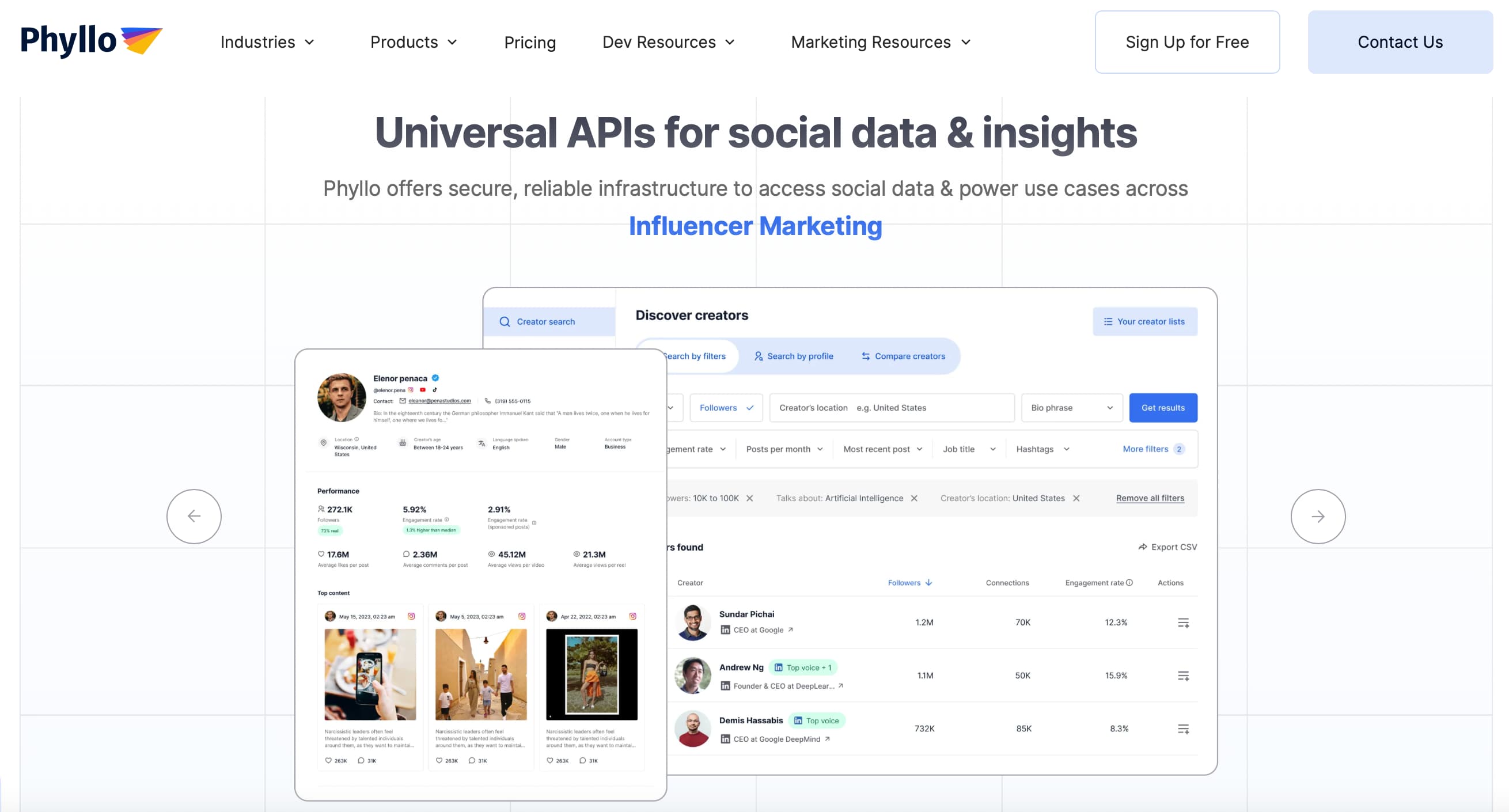
Cobertura de plataforma: Phyllo ofrece acceso a datos a más de 400 millones de creadores de todo el mundo Instagram, YouTube, TikTok, LinkedIn, y X (anteriormente Twitter). Admite el análisis de perfiles, el seguimiento de campañas y la exportación de contenido en estas plataformas. Sin embargo, los datos específicos de las plataformas para Twitch y Twitter son limitados, como han señalado algunos usuarios.
Ideal para: Phyllo es mejor para marcas, agencias y plataformas de marketing con influencers con tecnología buscan extraer datos de creadores autenticados a través de la API y crear paneles o herramientas personalizados.
Precios: Phyllo ofrece cuatro niveles de precios:
- Arrancador: 199$ al mes: incluye hasta 3000 resultados de búsqueda, 200 perfiles de creadores, 50 análisis de perfil y 25 publicaciones de campaña
- Rendimiento: 299 USD al mes: límites de uso más altos
- Crecimiento: 899 dólares/mes: diseñado para equipos en expansión
- Empresa: Precios personalizados basados en el volumen y las necesidades de la API
UN prueba gratuita con créditos está disponible para nuevos usuarios.
Reseñas: 4,5/ 5,0 (G2)
Facilidad de uso (UX/UI): Los usuarios describen el panel de Phyllo como limpio y funcional, especialmente para los usuarios con experiencia técnica. Sin embargo, las personas que no son desarrolladores suelen considerar que la plataforma no es intuitiva, especialmente cuando intentan llevar a cabo campañas de influencers sin el apoyo de un ingeniero.
Atención al cliente: Varios usuarios informan de tiempos de respuesta lentos y dificultades para resolver rápidamente los errores de la API. Si bien se dice que el equipo está bien informado, las demoras y la falta de soporte proactivo han frustrado a los clientes durante las campañas en las que el tiempo apremia.
Características destacadas de Phyllo
- Filtros de descubrimiento de influencers: Busca a más de 400 millones de creadores por plataforma, ubicación, participación, datos demográficos de la audiencia, colaboraciones anteriores con marcas y palabras clave en la biografía.
- Análisis del perfil del creador: Acceda a los costos estimados de colaboración, al análisis de opiniones, al desglose del contenido y a las tendencias de rendimiento.
- Panel de control de campañas: Organice el contenido de los influencers y realice un seguimiento de las métricas, como los me gusta, el alcance y el sentimiento de la audiencia en las publicaciones.
- Gráficos de crecimiento de Instagram: Analiza las tendencias de seguidores y likes a lo largo del tiempo para evaluar el desempeño de los influencers.
- Exportación de datos de correo electrónico y teléfono: Exporte los detalles de contacto del creador (cuando estén disponibles) para la divulgación manual.
- Informes de afinidad y seguridad de la marca: Evalúe el riesgo de los influencers, los hashtags de uso frecuente y las menciones de marcas de la competencia.
- API de descarga y reutilización de contenido: Introduce el contenido de los influencers directamente en tu propio sistema para volver a publicarlo o informar.
Pros y contras de Phyllo
Las 10 mejores alternativas a Phyllo
1. Héroe influyente
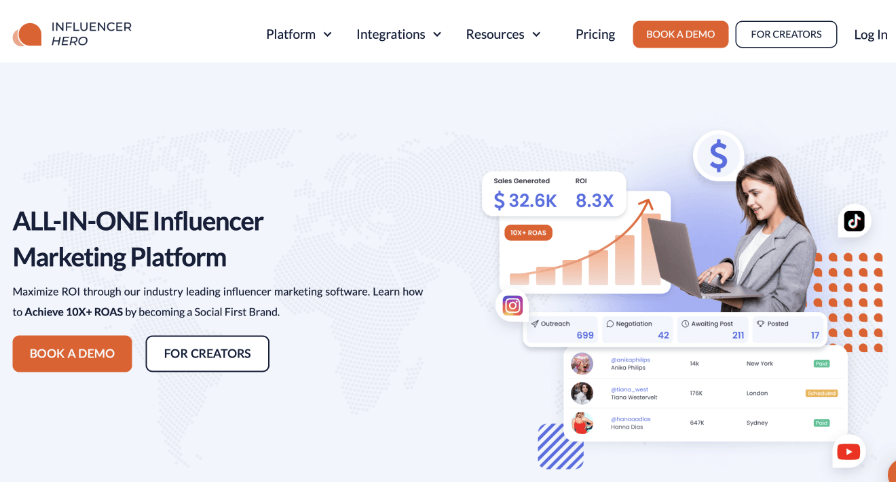
Cobertura de plataforma: Influencer Hero es compatible con 8 plataformas principales: Instagram, TikTok, YouTube, Facebook, Pinterest, Snapchat, X (Twitter) y Twitch. La plataforma está diseñada para respaldar el marketing de influencers en todos los principales canales sociales.
Ideal para: Influencer Hero es ideal para las marcas D2C, las empresas de comercio electrónico y las agencias que buscan ejecutar campañas de influencers y afiliados a gran escala con un control total sobre la automatización, el contenido y el seguimiento del ROI.
Precios: Influencer Hero ofrece planes mensuales flexibles adaptados a las diferentes etapas de crecimiento:
- Estándar: 649$ al mes: hasta 1000 contactos de creadores
- Pro: 1.049$ al mes: hasta 5000 contactos de creadores
- Negocio: 2.490 USD al mes: hasta 10 000 contactos de creadores
- Aduana y agencia: Precios personalizados según las necesidades de la marca
Todos los planes incluyen acceso al conjunto completo de funciones y pueden ampliarse a medida que su programa crezca.
Reseñas: 5.0/ 5.0 (Capterra)
Facilidad de uso (UX/UI): Influencer Hero es elogiado por su interfaz intuitiva, su estructura de campaña de arrastrar y soltar y sus paneles de control fáciles de usar. Creado pensando en la simplicidad, incluye flujos de trabajo automatizados, filtros inteligentes y plantillas de correo electrónico personalizables, lo que hace que la configuración y ejecución de las campañas sea perfecta incluso para equipos sin conocimientos técnicos.
Atención al cliente: El soporte es una de las funciones más aclamadas de Influencer Hero. Cada plan incluye un administrador de cuentas dedicado desde el primer día, con acceso a un chat en vivo con personas reales las 24 horas del día, los 7 días de la semana, un servicio de asistencia por correo electrónico responsivo y un completo centro de ayuda con tutoriales escritos y en vídeo. Los usuarios del plan Pro también tienen acceso a un canal privado de Slack para obtener asistencia en tiempo real y consultas estratégicas.
Características destacadas de Influencer Hero
- Descubrimiento de creadores con tecnología de inteligencia artificial: Los filtros avanzados, las sugerencias similares y la detección de seguidores falsos hacen que encontrar a los creadores adecuados sea rápido y preciso.
- Alcance automatizado y personalizado: Las secuencias de goteo mejoradas por IA y los flujos de correo electrónico 1:1 impulsan tasas de participación más altas.
- CRM inteligente para campañas: Tableros de campañas visuales realice un seguimiento de las tareas, la comunicación y los entregables del creador a escala.
- Integración de extensiones de Chrome: Incorpora al instante los datos de los creadores de Instagram, TikTok y YouTube a tus campañas.
- Seguidores de marcas influyentes: Identifica a los creadores que ya siguen tu marca e interactúa con ellos para establecer asociaciones auténticas.
- Herramientas de regalos multiplataforma: Es compatible con Shopify, WooCommerce y configuraciones personalizadas para la siembra y el seguimiento automatizados.
- Escaparates afiliados: Los creadores pueden alojar páginas de productos de marca e impulsar el seguimiento de las ventas con enlaces de afiliados integrados.
Ventajas y desventajas de Influencer Hero
Phyllo contra Influencer Hero
Phyllo ofrece un potente enfoque centrado en las API para acceder a los datos con el consentimiento del creador, lo que lo hace más adecuado para las empresas que crean sus propias herramientas de influencia. Sin embargo, carece de funciones integradas de gestión de campañas, automatización de la divulgación y regalos, lo que obliga a los usuarios a depender en gran medida de los equipos de desarrollo y de los flujos de trabajo manuales.
Por el contrario, Influencer Hero es una solución integral diseñada para profesionales del marketing de alto rendimiento. Ofrece todo lo que necesitas desde el primer momento, desde descubrir y dar a conocer a los creadores hasta obsequios, escaparates y pagos a afiliados.
Con precios flexibles que comienzan en 649 USD al mes y no se requiere ningún compromiso anual, Influencer Hero ofrece una funcionalidad y una facilidad de uso mucho mayores en un punto de entrada más accesible, lo que lo convierte en la opción más sólida para las marcas que están listas para crecer ahora.
¿Tienes curiosidad por saber cómo Influencer Hero puede mejorar tu estrategia de influencers? Reserva una demostración gratuita hoy y descubra cómo nuestra plataforma puede ayudarlo a ampliar el descubrimiento, la divulgación y el rendimiento, todo en un solo lugar.
2. Rastreador

Cobertura de plataforma: Traackr admite campañas de influencers en Instagram, TikTok, YouTube, Facebook, Pinterest, X (Twitter), Snapchat, Twitch y LinkedIn. Proporciona una escucha profunda en redes sociales y un seguimiento del rendimiento en estas plataformas, centrándose en la seguridad de la marca y en los datos históricos de rendimiento.
Ideal para: Rastreador es ideal para las marcas empresariales de belleza, moda y estilo de vida que priorizan la toma de decisiones basada en datos y necesitan visibilidad de las campañas globales y un seguimiento del gasto de los influencers a gran escala.
Precios: Traackr ofrece planes personalizados con precios que suelen comenzar en 32.500 dólares al año. Todos los planes se facturan anualmente y se adaptan en función de las necesidades de los usuarios, las regiones y el volumen de creadores gestionados.
Reseñas: 4,3/5,0 (G 2)
Facilidad de uso (UX/UI): A menudo se elogia a Traackr por su panel limpio y sus sólidas opciones de filtrado, especialmente cuando se gestionan campañas internacionales o multimercado. Sin embargo, algunos usuarios mencionan una curva de aprendizaje debido a su interfaz y terminología ricas en datos.
Atención al cliente: Los usuarios informan de un soporte receptivo y una incorporación útil, especialmente para los clientes empresariales más grandes. Si bien la plataforma no incluye el chat en vivo, los gestores especializados en el éxito de los clientes y los controles periódicos ayudan a las marcas a maximizar el valor de la herramienta.
Características destacadas de Tracker
- Detección y descubrimiento de influencers: Descubre a los creadores en función de las menciones anteriores de la marca, la calidad del contenido, los datos demográficos de la audiencia y las tasas de participación en varios países.
- Medición de campañas y seguimiento del ROI: Traackr vincula los datos de gasto con métricas de contenido y rendimiento para calcular el ROI real por influencer y campaña.
- Análisis de afinidad de contenido y marca: Analice la relación histórica entre las personas influyentes y las marcas para identificar los defensores, los competidores y los riesgos potenciales.
- Herramienta de evaluación comparativa de gastos: Compara tu inversión en influencers con la de tus competidores por plataforma, región o tipo de contenido.
- Inteligencia de mercado global: Acceda a información de docenas de países con herramientas de localización para identificar a los creadores con mejor desempeño en cada mercado.
- Historial de relaciones con influencers: Realice un seguimiento de todas las colaboraciones anteriores, la participación en el contenido y los hilos de mensajes para informar las campañas futuras.
- Puntuación de pago por desempeño: Evalúe a las personas influyentes en función del rendimiento por cada dólar gastado para optimizar las asignaciones futuras.
Pros y contras de Trackr
Phyllo contra Tracker
Phyllo es el más adecuado para los equipos de desarrolladores y las plataformas de influencers que buscan aprovechar los datos de los creadores autenticados. Su precio comienza en 199$ al mes y se amplía en función del uso de la API, lo que ofrece un punto de entrada flexible y asequible para los equipos expertos en tecnología. Sin embargo, carece de herramientas de ejecución de campañas, paneles de informes y una interfaz fácil de usar, lo que la hace menos viable para los equipos de marketing que necesitan una solución lista para usar.
Por el contrario, Traackr está diseñado para marcas empresariales gestionar campañas globales de influencers con un fuerte enfoque en ROI, seguridad de la marca y rendimiento histórico. Tiene un costo significativamente mayor, con planes que comienzan en 32.500 dólares/año, y requiere un contrato anual.
Si bien no ofrece divulgación ni obsequios, ofrece mucho más en términos de información estratégica, evaluación comparativa de gastos e informes de campañas, lo que lo hace más adecuado para los grandes equipos de marketing basados en datos que priorizan el control y la visibilidad sobre la ejecución manual.
3. Upfluencia
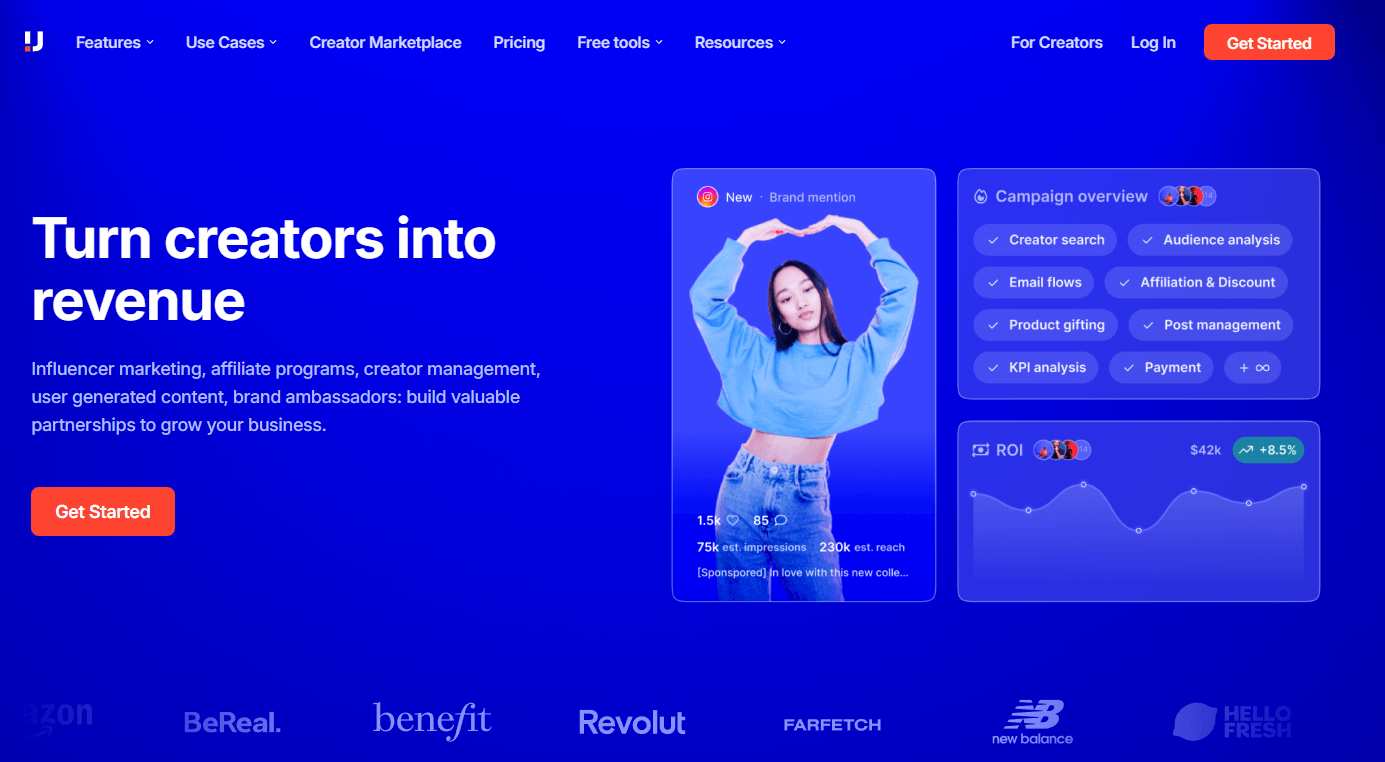
Cobertura de plataforma: Upfluence permite el descubrimiento de personas influyentes y la gestión de campañas en los blogs de Instagram, TikTok, YouTube, X (Twitter), Twitch, Pinterest y WordPress. También incluye integraciones sólidas con Shopify y Amazon, lo que permite a las marcas de comercio electrónico realizar un seguimiento del rendimiento y el ROI directamente desde la plataforma.
Ideal para: Upfluence es ideal para las marcas de comercio electrónico, especialmente aquellas que venden a través de Shopify o Amazon, que desean ampliar las campañas de influencers y, al mismo tiempo, aprovechar los datos de los clientes, realizar un seguimiento de las ventas de afiliados y gestionar los regalos y los pagos en un solo lugar.
Fijación: Upfluence ofrece un plan anual con facturación mensual a partir de 1276 USD al mes.
- El módulo de pagos se puede eliminar para reducir el costo mensual en 399 dólares
- Se requiere un compromiso anual; sin contratos mensuales ni prueba gratuita
- Costo anual: 16.007 dólares o 14.406 dólares si se paga por adelantado
Reseñas: 4.3/ 5.0 (Capterra)
Facilidad de uso (UX/UI): Los usuarios aprecian el panel limpio y las potentes herramientas de filtrado, especialmente para la búsqueda de influencers y el seguimiento de campañas. Si bien son robustas en cuanto a características, algunos reportan un curva de aprendizaje durante la incorporación debido a la profundidad de la funcionalidad, especialmente en lo que respecta a la divulgación avanzada y las integraciones de Shopify.
Atención al cliente: El soporte se describe como receptivo y experto, con acceso a sesiones de incorporación y tutoriales útiles. Sin embargo, algunos usuarios mencionan que la complejidad de la plataforma puede ralentizar la configuración inicial si no se cuenta con soporte directo ni experiencia en la gestión de programas de afiliados.
Características destacadas de Upfluence
- Asistente de campaña de IA (Jace AI): Automatiza los flujos de trabajo de divulgación, las secuencias de correo electrónico y el seguimiento de los influencers.
- Motor de detección multiplataforma: Busca en más de 12 millones de creadores de todo el mundo con filtros avanzados por participación, nicho, datos demográficos de la audiencia y precios sugeridos.
- Seguimiento de campañas y CRM: Supervisa el rendimiento del contenido, los clics en los enlaces, el alcance, las impresiones y las conversiones individuales en un solo panel.
- Integración de Shopify para regalar a personas influyentes: Identifique a los clientes que son personas influyentes, agilice la siembra y realice un seguimiento del ROI posterior a los obsequios.
- Integración con Amazon: Atribuye las ventas de afiliados a los creadores y haz un seguimiento de los ingresos directamente a través de las campañas de Amazon.
- Reutilización de contenido y escucha social: Descarga contenido de influencers y analiza las publicaciones de alto rendimiento de la industria para guiar la estrategia de contenido.
- Pagos masivos seguros: Gestiona los pagos a los creadores a través de Upfluence Pay, optimizado para el cumplimiento tributario de EE. UU. y evita las fricciones de PayPal.
Ventajas y desventajas de Upfluence
Phyllo contra Upfluence
Phyllo y Upfluence sirven para casos de uso fundamentalmente diferentes. Phyllo es una plataforma de API de datos creada para desarrolladores que desean crear herramientas de influencia personalizadas. Ofrece precios flexibles a partir de 199 dólares al mes, pero carece de herramientas nativas para la divulgación, la CRM, los regalos o el seguimiento del contenido. Es ideal para los equipos técnicos, pero no para los profesionales del marketing que buscan una solución lista para usar.
Por el contrario, Upfluence es una plataforma de marketing de influencers de servicio completo, diseñada para marcas de comercio electrónico que desean gestionar todo el ciclo de vida de la campaña, desde el descubrimiento hasta la reutilización del contenido y los pagos. Con un precio que comienza en 1276$ al mes (contrato anual), es bastante más cara que Phyllo, pero elimina la necesidad de herramientas externas o del soporte de los desarrolladores.
Para las marcas que buscan escalar rápidamente y hacer un seguimiento del ROI a través de Shopify o Amazon, Upfluence es la solución más completa y lista para el marketing.
4. Captive 8

Cobertura de plataforma: Captiv8 ofrece soporte de marketing con influencers en Instagram, TikTok, YouTube, Facebook, X (Twitter), Snapchat y Twitch. Incluye integraciones con Shopify y Refersion, pero carece de soporte nativo para plataformas como Amazon o WooCommerce.
Ideal para: Captiv8 es ideal para las marcas y agencias empresariales que llevan a cabo campañas de influencers a gran escala que necesitan flujos de trabajo colaborativos, un seguimiento avanzado de las campañas y herramientas de evaluación comparativa competitivas.
Precios: Captiv8 requiere un compromiso anual a partir de 25 000 USD al año, más una tarifa de incorporación única de 3000 USD.
- Los escaparates y la funcionalidad completa de comercio de afiliados cuestan entre 20 000 y 30 000 dólares adicionales al mes.
- No hay planes mensuales ni pruebas gratuitas disponibles.
Reseñas: 4,2/5,0 (G2)
Facilidad de uso (UX/UI): Los usuarios elogian la capacidad de filtrado y la personalización de los informes de Captiv8, incluidos los paneles de arrastrar y soltar y los filtros reutilizables. Sin embargo, su complejidad y profundidad de funciones hacen que sea más adecuado para equipos de marketing experimentados que para empresas pequeñas o principiantes.
Atención al cliente: La atención al cliente ha sido criticada con frecuencia. Los usuarios denuncian retrasos en las respuestas, problemas no resueltos y falta de una solución proactiva de solución de problemas, tanto desde el punto de vista de la marca como del creador de la plataforma.
Ventajas y desventajas de Captive8
Phyllo contra Captive8
Phyllo y Captiv8 se dirigen a públicos muy diferentes. Filo prioriza las API, ideal para las empresas que crean herramientas de influencia personalizadas con datos autorizados por los creadores. Empieza con tan solo 199$ al mes, pero carece de flujos de trabajo completos para las campañas, herramientas de divulgación o paneles de análisis, lo que lo hace ideal para los equipos de desarrolladores, no para los especialistas en marketing.
Captiv8, por otro lado, es un plataforma empresarial integral centrado en el descubrimiento, el seguimiento del rendimiento y la colaboración. Sin embargo, tiene un precio elevado, a partir de 25 000 dólares/año más tarifas de incorporación y hasta 30 000 dólares/mes para las funciones de escaparate de afiliados.
Si bien Captiv8 ofrece informes avanzados e inteligencia competitiva, su falta de flexibilidad en los precios, las frecuentes quejas del servicio de atención al cliente y las limitadas integraciones de comercio electrónico lo hacen menos adecuado para equipos más pequeños o en expansión.
5. Creador IQ

Cobertura de plataforma: CreatorIQ admite el marketing de influencers en Instagram, TikTok, YouTube, Facebook, Pinterest, Twitch y X (Twitter). Ofrece una sólida cobertura de datos global (excluyendo ciertas regiones de China) y se integra directamente con las plataformas a través de las API oficiales para obtener datos compatibles en tiempo real.
Ideal para: CreatorIQ es ideal para grandes empresas y marcas globales que buscan una plataforma integral que cumpla con los datos para gestionar campañas de influencers complejas a gran escala, con informes avanzados, CRM y soporte estratégico incluidos.
Precios: CreatorIQ ofrece solo contratos anuales, con cuatro niveles principales:
- Básico: 35 000$ al año: 1000 puestos para creadores y 3 usuarios
- Estándar: 50 000$ al año: 2500 creadores y 5 plazas
- Profesional: 90 000$ al año: 5000 creadores y 10 puestos
- Empresa: 200 000$ al año: 7 500 creadores y 20 plazas
- Complemento opcional «Creator Connect»: 15 000$ al año
- Se aplica una tarifa de pago del 2% después de los primeros 100 000$ al año en pagos al creador
Reseñas: 4.4/ 5.0 (Capterra)
Facilidad de uso (UX/UI): Los usuarios encuentran que la plataforma es rica en funciones pero fácil de usar, con paneles limpios, filtros avanzados e informes en vivo. Algunos señalan que, si bien hay mucho por explorar, la interfaz de usuario intuitiva y de incorporación la hacen manejable tanto para equipos pequeños como grandes.
Atención al cliente: CreatorIQ recibe elogios por su apoyo estratégico práctico, que incluye un gerente de implementación dedicado, un administrador de éxito del cliente y sesiones de planificación trimestrales. Su equipo se describe como «una extensión de tu equipo», ya que ofrece orientación sobre la campaña y revisiones periódicas del desempeño.
Características destacadas de CreatorIQ
- Filtros de búsqueda semántica e IA: Descubre a creadores que utilizan filtros avanzados y búsquedas semánticas basadas en IA, como «papás tenistas» o «chefs caseros de menos de 100 000».
- Resumen personalizable de CRM y campaña: Realiza un seguimiento del historial, las notas y las preferencias de marca del creador, y envía informes a través de flujos de trabajo con plantillas.
- Informes y análisis en tiempo real: Paneles totalmente personalizables con datos de Meta, YouTube y TikTok, que incluyen participación, alcance, EMV y ROI de la campaña.
- Páginas de registro para creadores de marca: «Creator Connect» permite a las personas influyentes postularse para trabajar con tu marca y canaliza las presentaciones al CRM.
- Integración con Shopify: Permite los regalos, el seguimiento de productos y la gestión de direcciones directamente desde la plataforma.
- Herramientas de aprobación de una hoja: Crea enlaces en vivo y sin inicio de sesión para que las partes interesadas aprueben o rechacen a los influencers y vean las vistas previas del contenido.
- Pagos de creadores integrados: Sistema de pagos centralizado que administra los impuestos y el cumplimiento del IRS, lo que reduce la carga de trabajo del equipo de finanzas.
Pros y contras de CreatorIQ
Phyllo contra CreatorIQ
Phyllo y CreatorIQ satisfacen necesidades de usuario muy diferentes. Phyllo es una solución que da prioridad a los desarrolladores y que ofrece datos con el consentimiento del creador a través de API a partir de 199$ al mes, pero carece de herramientas de gestión de campañas, herramientas de divulgación o paneles de control compatibles con la interfaz de usuario. Es más adecuada para equipos de productos o empresas que crean soluciones personalizadas para influencers de forma interna.
Por el contrario, CreatorIQ es una plataforma empresarial a gran escala, ideal para grandes equipos de marketing que gestionan estrategias de influencia en varios mercados. Con precios que comienzan en 35 000$ al año y suben hasta 200 000$ al año, es una solución de primera calidad que incluye CRM, regalos, pagos, informes y soporte estratégico.
Para las marcas que necesitan un cumplimiento de nivel empresarial, verificación de creadores y análisis integrados, CreatorIQ es la opción más potente (pero más costosa).
6. HypeAuditor

Cobertura de plataforma: HypeAuditor admite el análisis de influencers y la gestión de campañas en Instagram, TikTok, YouTube, Twitch, Snapchat y X (anteriormente Twitter). Es particularmente eficaz en la auditoría de personas influyentes, ya que cada plataforma incorpora datos en tiempo real y detección de fraudes.
Ideal para: HypeAuditor es ideal para las marcas y agencias impulsadas por el rendimiento que priorizan la precisión de los datos, la verificación de los influencers y la autenticidad de la audiencia cuando lanzan campañas de influencers en las redes sociales.
Precios: HypeAuditor ofrece planes personalizados en función del uso:
- Plan de negocios: aproximadamente 10 000 dólares/año: incluye 2000 informes de personas influyentes, búsquedas ilimitadas y 20 campañas activas
- Plan empresarial: 60 000 USD al año: incluye informes ilimitados y acceso completo
- Las cotizaciones personalizadas están disponibles según la cantidad de informes, campañas y usuarios
- Hay disponible una prueba gratuita de 24 a 48 horas para explorar la plataforma
Reseñas: 4,3/5,0 (G2)
Facilidad de uso (UX/UI): Los usuarios dicen que la plataforma es rica en funciones y que prioriza los datos, con filtros potentes e informes personalizables. Sin embargo, al principio puede resultar abrumador para los principiantes y es posible que sea necesario incorporarlos para aprovechar al máximo las capacidades de la herramienta.
Atención al cliente: HypeAuditor recibe elogios por la incorporación personalizada y el soporte responsivo, especialmente durante los períodos de configuración y prueba. Todos los planes incluyen el acceso a los equipos técnicos y de atención al cliente, con un soporte guiado para las campañas según sea necesario.
Características destacadas de HypeAuditor
- Descubrimiento y detección de fraudes impulsados por IA: Busca personas influyentes mediante filtros basados en el contenido que analizan biografías, subtítulos y contenido multimedia, y verifican la autenticidad de los seguidores y la calidad de la interacción.
- Herramientas de mensajería y CRM para influencers: Crea listas de influencers, envía campañas masivas de difusión por correo electrónico o mensaje directo, gestiona los contratos y revisa los borradores de contenido.
- Informes de campañas y ROI de comercio electrónico: Realice un seguimiento de la participación, el costo por acción, las conversiones y los ingresos a través de Shopify o la integración de códigos promocionales.
- Herramienta de búsqueda similar: Encuentra creadores similares en función de los perfiles de influencers que ya te gustan.
- Escucha social y menciones de la competencia: Controla quién habla de tu marca o de la competencia en tiempo real.
- Páginas de aplicaciones de Branded Creator: Crea páginas de destino en las que los influencers puedan participar en tus campañas.
- Próxima búsqueda de IA basada en indicaciones: Pronto podrás dar instrucciones como «Encuentra creadores gastronómicos radicados en EE. UU. que no hayan trabajado con X» en lenguaje natural.
Ventajas y desventajas de HypeAuditor
Phyllo frente a HypeAuditor
Phyllo e HypeAuditor desempeñan funciones muy diferentes en el ecosistema de los influencers. Phyllo es una plataforma basada en API diseñada para equipos de desarrollo que buscan acceder a datos con el consentimiento del creador para obtener herramientas personalizadas, con un precio que comienza en 199$ al mes. Si bien es flexible y escalable, Phyllo carece de herramientas de divulgación, paneles de campañas o seguimiento del comercio electrónico, lo que la hace menos adecuada para las marcas que buscan una ejecución de campañas llave en mano.
HypeAuditor, por el contrario, es una plataforma de marketing de influencers rica en datos que ofrece de todo, desde el descubrimiento y la detección de fraudes hasta el seguimiento y la divulgación de campañas. Sus planes estándar comienzan en unos 10 000$ al año e incluyen una búsqueda sólida, informes sobre personas influyentes y herramientas de CRM.
Para las marcas que se centran en la autenticidad, los análisis detallados y la información basada en la inteligencia artificial, HypeAuditor es una opción mucho más completa y accesible, especialmente para aquellas que no tienen un equipo técnico.
7. Sonríe

Cobertura de plataforma: Instagram, TikTok, YouTube, X (Twitter), Twitch, Snapchat.
Ideal para: GRIN es ideal para las marcas de comercio electrónico y DTC que necesitan una plataforma sólida e integral para gestionar las relaciones con los influencers, los obsequios, los pagos de afiliados y la recaudación de UGC a gran escala.
Precios: Los precios comienzan en 25 000 USD al año, con pagos mensuales disponibles. Por lo general, GRIN exige un compromiso mínimo de 12 meses y los precios pueden variar según las funciones y el volumen de uso. Algunos usuarios afirman que la transparencia de los precios podría mejorarse durante el proceso de venta.
Reseñas: 4,5/ 5,0 (G2)
Facilidad de uso (UX/UI): GRIN es conocido por su panel de campañas organizado e integral, pero algunos usuarios consideran que la experiencia de usuario es inconsistente, especialmente en lo que respecta a las funciones de búsqueda y las páginas que se cargan lentamente. Si bien la biblioteca de contenido y los portales para creadores son fáciles de usar, otros mencionan una curva de aprendizaje y, en ocasiones, retrasos o fallos durante el uso.
Atención al cliente: Los comentarios de soporte son variados. Muchos usuarios elogian la disponibilidad de los estrategas de incorporación y de los canales de Slack para obtener asistencia rápida, mientras que otros informan de que hay solicitudes sin resolver, respuestas retrasadas y dificultades a la hora de cancelar o solucionar errores.
Características destacadas de GRIN
- Descubrimiento de influencers impulsado por IA: Busca por palabras clave o realiza búsquedas similares con el motor de inteligencia artificial de GRIN para descubrir a los creadores más aptos.
- CRM para la gestión de influencers: Personalice sus canales de creación, etiquete los contactos y agilice las comunicaciones con la integración de correo electrónico integrada.
- Informes en tiempo real y análisis del ROI: Realice un seguimiento de los ingresos de los afiliados, el rendimiento de los obsequios y la eficacia del UGC en todas las campañas.
- Asistente inteligente GRIN (Gia): un agente de IA integrado que permite la calificación de los creadores, la puntuación y la optimización de la campaña.
- Integraciones de Shopify y WooCommerce: Permite flujos de trabajo automatizados de regalos, creación de códigos de descuento y sincronización de envíos.
- Portales para creadores con derechos de prensa y envíos: paneles personalizados para que los creadores carguen entregas, firmen contratos y reciban pagos.
- Affiliate Hub + Biblioteca UGC: Seguimiento centralizado de los pagos de comisiones y la reutilización del contenido con capacidad de búsqueda en todos los formatos, incluidas las historias de Instagram.
Ventajas y desventajas de GRIN
Phyllo contra GRIN
Phyllo se posiciona como una solución basada en API que permite un acceso seguro a los datos de los creadores, mientras que GRIN ofrece una plataforma completa de marketing de influencers diseñada específicamente para el comercio electrónico.
A diferencia de Phyllo, GRIN gestiona todo el ciclo de vida de los influencers, desde el descubrimiento y los obsequios hasta los pagos y el almacenamiento de contenido, en una sola interfaz. El punto fuerte de Phyllo reside en las integraciones de backend y en el cumplimiento para los equipos con muchos desarrolladores, mientras que GRIN se adapta a la ejecución práctica del marketing.
En lo que respecta a los precios, Phyllo ofrece opciones más flexibles de pago a medida que crece, mientras que GRIN tiene un punto de entrada más alto, a partir de 25 000$ al año, lo que puede no ser factible para los equipos pequeños y medianos.
Sin embargo, para las marcas que dependen en gran medida de Shopify o WooCommerce y necesitan amplias herramientas de regalos, UGC y afiliados, GRIN ofrece una automatización más profunda y un seguimiento del ROI que supera lo que Phyllo puede ofrecer de forma inmediata.
Descubra: Influencer Hero Vs Grin: alternativa rentable
8. Un influencer
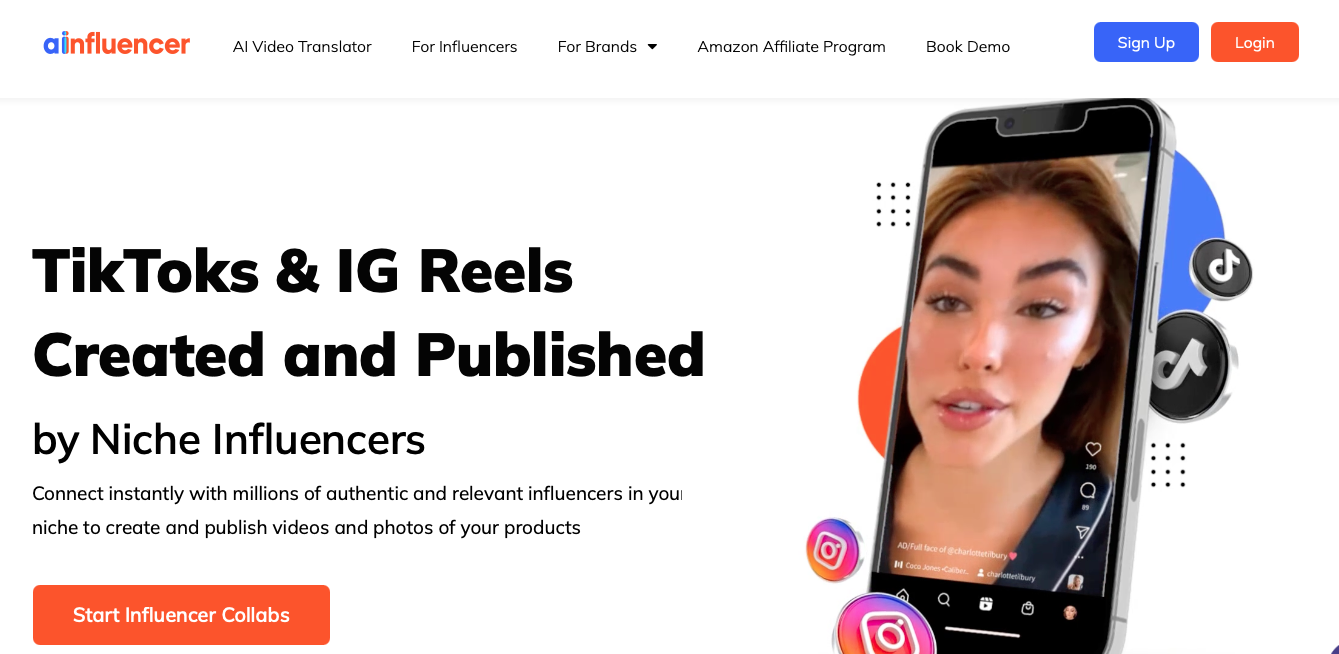
Cobertura de plataforma: Instagram, TikTok.
Ideal para: aInfluencer es ideal para pequeñas y medianas marcas de comercio electrónico o empresas emergentes que buscan un mercado de influencers gratuito o de bajo costo para ejecutar campañas en Instagram y TikTok, ya sea de autoservicio o totalmente administradas.
Precios: aInfluencer ofrece una de uso gratuito plataforma de autoservicio sin tarifas de software. Los pagos de los influencers comienzan desde 10 dólares. Para las campañas gestionadas, los paquetes escalonados incluyen:
- Viral: 7.999$ (1 mes, 25 personas influyentes, más de 2,5 millones de seguidores combinados)
- Escala: 9.999$ (2 meses, 50 personas influyentes, más de 7,5 millones de seguidores)
- Súper escala: 15 000$ (3 meses, 75 personas influyentes, más de 55 millones de seguidores)
- Turbo viral: 29.999$ (4 meses, 200 personas influyentes, más de 100 millones de seguidores)
Reseñas: 4.5/5.0 en G2.
Facilidad de uso (UX/UI): Los usuarios aprecian el diseño intuitivo del creador de campañas y el mercado optimizado para dispositivos móviles, especialmente para los creadores. La extensión de Chrome simplifica la comunicación directamente desde Instagram. Sin embargo, la interfaz de fondo puede parecer limitada debido a los análisis básicos y a la falta de filtros de búsqueda sólidos.
Atención al cliente: Las marcas que llevan a cabo campañas gestionadas reciben asistencia del equipo interno de aInfluencer por correo electrónico, WhatsApp o mensajería de la plataforma. Algunos usuarios mencionan la incorporación rápida y el seguimiento útil, mientras que otros mencionan que la documentación es mínima y que el soporte de chat en tiempo real es limitado para los usuarios gratuitos.
Características destacadas de aInfluencer
- Alcance de personas influyentes a través de una aplicación móvil: Los creadores exploran las campañas, chatean y envían las entregas a través de una aplicación móvil específica.
- Bandeja de entrada para creadores y creadores de campañas: Crea campañas con filtros y plantillas e invita a los creadores directamente; comunícate mediante plantillas personalizables.
- Generador de invitaciones impulsado por IA: La extensión de Chrome genera automáticamente invitaciones para los creadores de Instagram basándose en las instrucciones generadas por la IA.
- Protección de pagos en garantía: Los pagos solo se liberan cuando se aprueban las entregas, lo que garantiza la seguridad de la marca.
- Biblioteca de contenido con propiedad: Las marcas conservan los derechos y pueden aprobar, rechazar y descargar contenido de personas influyentes dentro de la plataforma.
- Opciones flexibles de administración de campañas: Las marcas pueden gestionar las campañas por sí mismas u optar por paquetes totalmente gestionados.
- Próximamente Shopify Fulfillment y traducción de vídeos: Las funciones beta incluyen regalos basados en Shopify y traducciones automáticas de vídeos para campañas internacionales.
Ventajas y desventajas de Ainfluencer
Phyllo contra Ainfluencer
Phyllo y aInfluencer sirven a segmentos fundamentalmente diferentes del ecosistema de marketing de influencers. Phyllo es principalmente una herramienta de infraestructura de API creada para plataformas y desarrolladores que desean acceder a los datos autenticados de los creadores (como información y ganancias). Por otro lado, aInfluencer es un mercado de influencers listo para usar diseñado para que las marcas publiquen campañas completas, ya sea a través de su plataforma de autoservicio o mediante servicios gestionados.
En términos de precios, aInfluencer tiene una clara ventaja para las marcas más pequeñas o para aquellas que prueban el marketing con influencers, ya que ofrece un modelo de autoservicio completamente gratuito y paquetes de gestión de campañas por niveles. Phyllo, si bien es más flexible para las integraciones personalizadas, no proporciona herramientas de ejecución de campañas listas para usar.
Para los especialistas en marketing que priorizan la facilidad de uso, el bajo costo y la ejecución de campañas en Instagram y TikTok, aInfluencer ofrece una alternativa ligera y económica al enfoque centrado en las API de Phyllo.
9. Influencia
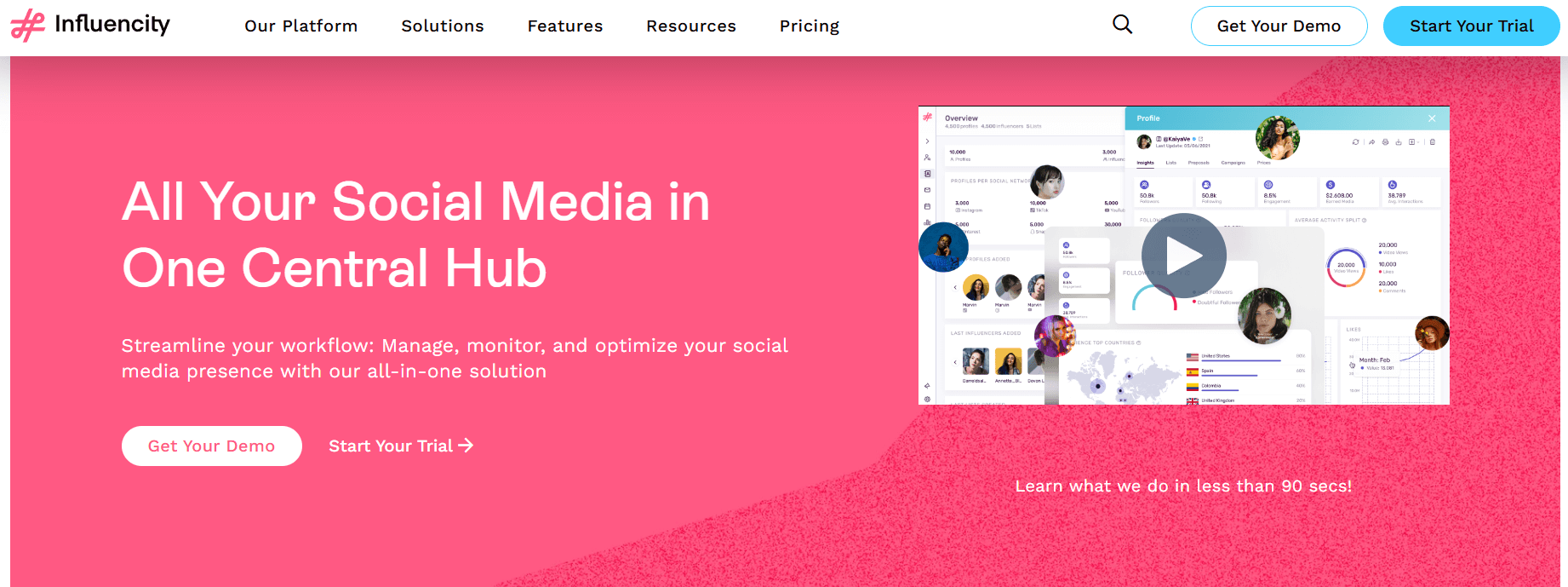
Cobertura de plataforma: Instagram, TikTok, YouTube y Twitter (solo análisis).
Ideal para: Ideal para las marcas de DTC y los equipos de marketing de personas influyentes que buscan una solución integral basada en datos públicos, ideal para quienes desean gestionar la detección, los obsequios, el CRM y el seguimiento de campañas sin depender de la autenticación del creador.
Precios:
- Plan profesional: 3.816 dólares al año: incluye: 10 000 resultados de búsqueda al mes, 150 desbloqueos de perfil al mes, 1200 correos electrónicos de divulgación al mes y 5 puestos de usuario
- Plan de negocios: Precios personalizados
- Complemento: Herramienta de seguimiento automático para 50 personas influyentes con un precio de aproximadamente 660 dólares al año (precios escalados disponibles)
Reseñas: 4,6/ 5,0 (G2)
Facilidad de uso (UX/UI): Influencia es elogiado por su CRM intuitivo, sus tableros de campaña al estilo Kanban y su limpio diseño de tablero. Los usuarios mencionan una ligera curva de aprendizaje durante la incorporación, pero una vez configurada, el flujo se vuelve fluido y lógico. Muchos valoran la posibilidad de segmentar visualmente y etiquetar a los creadores en listas y procesos.
Atención al cliente: El soporte generalmente se considera confiable, especialmente para los usuarios del plan Business. Algunos revisores mencionan tiempos de respuesta más lentos en caso de problemas técnicos y durante la incorporación. Hay un centro de ayuda y una guía de incorporación disponibles, pero no hay soporte de chat en vivo las 24 horas del día, los 7 días de la semana.
Características destacadas de Influence
- Descubrimiento de influencers impulsado por IA: Busca en más de 15 millones de perfiles de personas influyentes con filtros como la demografía de la audiencia, las palabras clave, los hashtags, la tasa de participación, la ubicación y la afinidad con la marca, sin necesidad de autenticar al creador.
- CRM avanzado con Visual Pipelines: Gestiona las relaciones con los creadores con un tablero Kanban de arrastrar y soltar que te permite etiquetar, segmentar y realizar un seguimiento del estado de los influencers en varias campañas.
- Difusión por correo electrónico con seguimiento de clics: Envíe correos electrónicos de divulgación masivos o personalizados con seguimiento del rendimiento, clics en enlaces y plantillas personalizables; admite seguimientos y actualizaciones de estado dentro del CRM.
- Integración de Shopify para regalos y atribución: Automatiza la entrega de productos y haz un seguimiento de las ventas impulsadas por personas influyentes mediante una profunda integración con Shopify, lo que permite a las marcas conectar la actividad de la tienda con creadores específicos.
- Páginas de solicitud de campañas de marca: Genera fácilmente páginas de destino con tu marca en las que los creadores puedan postularse para unirse a tus campañas, lo que agiliza el interés y la calificación entrantes.
Ventajas y desventajas de la influencia
Filo vs Influencia
Phyllo está dirigido a equipos de productos y plataformas que necesitan datos de creadores verificados a través de integraciones de API, ideales para aplicaciones y empresas con tecnología. Sin embargo, carece de funciones principales, como la ejecución de campañas, el CRM y los paneles de análisis, lo que la convierte en una solución de fondo en lugar de una herramienta independiente para los profesionales del marketing.
Influencity, por otro lado, ofrece una suite completa de autoservicio con seguimiento de campañas, divulgación de personas influyentes e integración con Shopify, impulsada por datos públicos, sin necesidad de autenticación del creador.
Su precio comienza en 3.816 dólares/año, mientras que el de Phyllo está basado en API y depende del uso. Para los equipos que buscan llevar a cabo campañas de influencers de forma activa sin el apoyo de ingeniería, Influencity es la opción más adecuada desde el primer momento.
10. Favikon
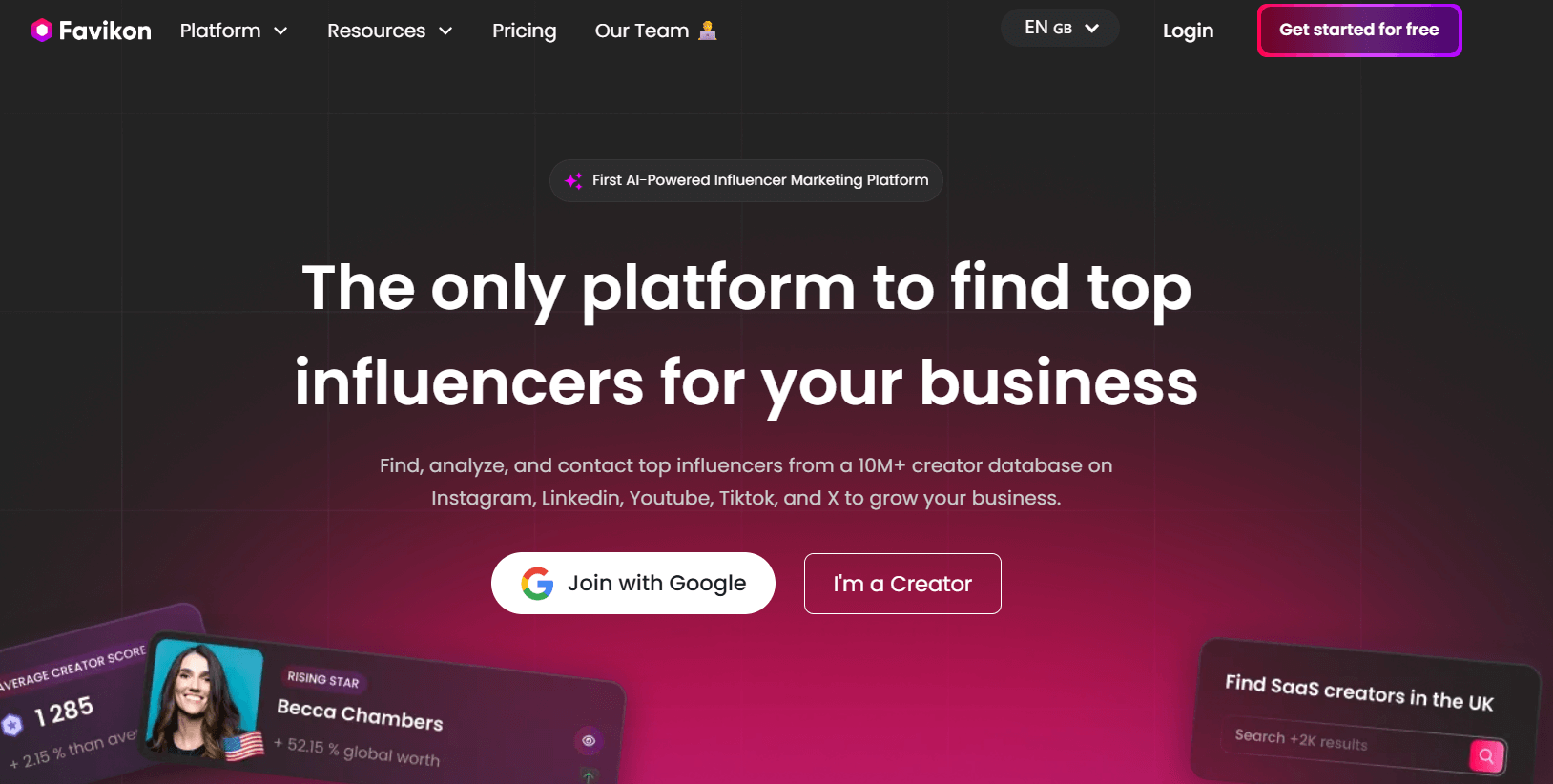
Cobertura de plataforma: Favikon es compatible con Instagram, TikTok, LinkedIn, Twitter (X) y YouTube, con especial énfasis en los creadores B2B de LinkedIn y Twitter.
Lo mejor para: Favikon es ideal para las marcas y agencias B2B que buscan descubrir líderes de opinión y creadores de nichos en plataformas como LinkedIn y Twitter. También es ideal para empresas emergentes que buscan monitorear la marca personal y las micropersonas influyentes.
Fijación: Favikon ofrece tres niveles de precios:
- Inicio: 99 €/mes
- Escala: 249 €/mes
- Enterprise: precios personalizados
Todos los planes se facturan mensualmente sin necesidad de un compromiso a largo plazo.
Reseñas: Calificación 4.5/5.0 (G2)
Facilidad de uso (UX/UI): Los usuarios suelen destacar la interfaz moderna e intuitiva de Favikon, con un panel de control fácil de navegar y un diseño elegante. Las herramientas de búsqueda son fáciles de usar, incluso para los principiantes, y los informes visuales facilitan el análisis del rendimiento.
Atención al cliente: Favikon es conocida por su asistencia rápida y amigable, que a menudo responde a las consultas en unas pocas horas. Si bien no ofrecen chat en vivo las 24 horas del día, los 7 días de la semana, los usuarios han mencionado que sus sesiones de incorporación y la documentación de ayuda son eficaces y útiles.
Características destacadas de Favikon
- Descubrimiento de influencers en LinkedIn y Twitter: Una de las pocas herramientas especializadas en identificar creadores y líderes de opinión más allá del conjunto estándar de Instagram/TikTok.
- Puntuación de rendimiento del creador (puntuación de Favikon): métrica basada en inteligencia artificial para clasificar a los creadores según la autenticidad, la calidad de la audiencia y la relevancia del contenido.
- Listas personalizadas y gestión al estilo CRM: Crea listas de creadores seleccionadas, etiqueta por nicho y gestiona la comunicación mediante notas y seguimiento del estado.
- Monitorización competitiva: Compara el desempeño de tus influencers con el de la competencia y haz un seguimiento de las estrategias de influencia de los líderes de la industria.
- Las 100 mejores clasificaciones por industria: Clasificaciones disponibles al público que muestran a los mejores creadores por sector y región.
- Desglose del contenido de LinkedIn: Analice el tipo de contenido publicado por los creadores (por ejemplo, carrusel, encuestas, enlaces) para evaluar la adecuación de la estrategia.
Pros y contras de Favikon
Phyllo contra Favikon
Si bien tanto Phyllo como Favikon ofrecen soluciones de datos para personas influyentes, sus enfoques principales difieren significativamente. Phyllo es una capa de API de datos creada para desarrolladores que desean incorporar los datos de los creadores en tiempo real a sus propios sistemas o aplicaciones. Favikon, por el contrario, es una plataforma orientada al usuario diseñada para los profesionales del marketing (especialmente en el sector B2B) que necesitan una herramienta sencilla para descubrir y evaluar la credibilidad de los creadores, especialmente en LinkedIn y Twitter.
En términos de precios, Favikon destaca por su bajo punto de entrada y su flexibilidad de facturación mensual, mientras que Phyllo normalmente implica una cotización personalizada basada en el uso de la API y requiere trabajos de integración.
Si lo que buscas es descubrir influencers listos para usar con una buena puntuación de creadores y una evaluación comparativa competitiva en el ámbito B2B, Favikon es un claro ganador. Phyllo podría ser más adecuado para los equipos de tecnología que crean herramientas para influenciar desde cero.
Reflexiones finales sobre Phyllo Alternatives
La elección de la plataforma de marketing de influencers adecuada depende de tus necesidades específicas, ya seas una marca D2C de rápido crecimiento, una startup B2B o una agencia que hace malabares con varias campañas. Si bien Phyllo cuenta con una sólida infraestructura de datos de back-end, muchos profesionales del marketing buscan soluciones listas para usar con funciones integradas de descubrimiento, divulgación y análisis.
Las plataformas como Influencer Hero ofrecen una verdadera solución integral con funciones sólidas como escaparates para creadores, pagos de afiliados, flujos de trabajo de obsequios y el mejor CRM de su clase.
Si estás buscando una herramienta fácil de usar para gestionar cada parte de tu embudo de marketing con influencers, sin necesidad de ayuda de ingeniería, Influencer Hero es una de las alternativas más completas y escalables disponibles en 2025.

Si está buscando alternativas a Phyllo que ofrezcan algo más que solo API de datos, las mejores opciones incluyen Influencer Hero, Grin, Upfluence y CreatorIQ. A diferencia de Phyllo, que se centra en los desarrolladores, estas plataformas están diseñadas para los profesionales del marketing con herramientas integradas para el descubrimiento de personas influyentes, la divulgación, el seguimiento de campañas y la gestión de afiliados. Influencer Hero, en particular, destaca por su enfoque integral, su interfaz intuitiva y sus precios flexibles, lo que lo hace ideal tanto para marcas como para agencias.
Si bien Phyllo sobresale como solución de infraestructura de datos para desarrolladores, carece de herramientas integradas de administración de campañas, funciones de divulgación para creadores y funciones de obsequios o escaparates. Las marcas y los profesionales del marketing que desean una solución completa de marketing para influencers sin tener que crear su propio sistema suelen recurrir a herramientas como Influencer Hero, Traackr o Captiv8. Estas plataformas ofrecen una experiencia más fácil de usar con funciones como la divulgación basada en la inteligencia artificial, la elaboración de informes en tiempo real y el seguimiento del contenido UGC.
Sí. Herramientas como Influencer Hero ofrecen una experiencia sin código y lista para usar, con incorporación guiada y soporte en vivo. A diferencia de Phyllo, que requiere la integración de la API y recursos para desarrolladores, Influencer Hero incluye flujos de campaña prediseñados, plantillas de divulgación y un panel de control fácil de navegar, lo que lo hace ideal para equipos sin asistencia de ingeniería.
Para las marcas de comercio electrónico pequeñas y medianas, especialmente las de Shopify o Amazon, Influencer Hero es una de las opciones más populares. Ofrece soporte integrado para campañas de regalos, pagos de afiliados, escaparates de creadores y análisis en una sola plataforma. Además, los precios son más flexibles en comparación con las herramientas de nivel empresarial como CreatorIQ o GRIN.
Phyllo normalmente opera con un modelo de precios personalizado basado en el uso de la API, lo que puede resultar costoso en términos de escala. Por el contrario, plataformas como Influencer Hero ofrecen precios transparentes para diferentes planes (a partir de 0 USD al mes con una tarifa basada en el éxito) e incluyen un conjunto completo de funciones: descubrimiento, CRM, análisis y UGC
Blogs más populares
¿Estás listo para lograr un ROI de más de 10 veces?
Programa una demostración con uno de nuestros expertos en medios a continuación.

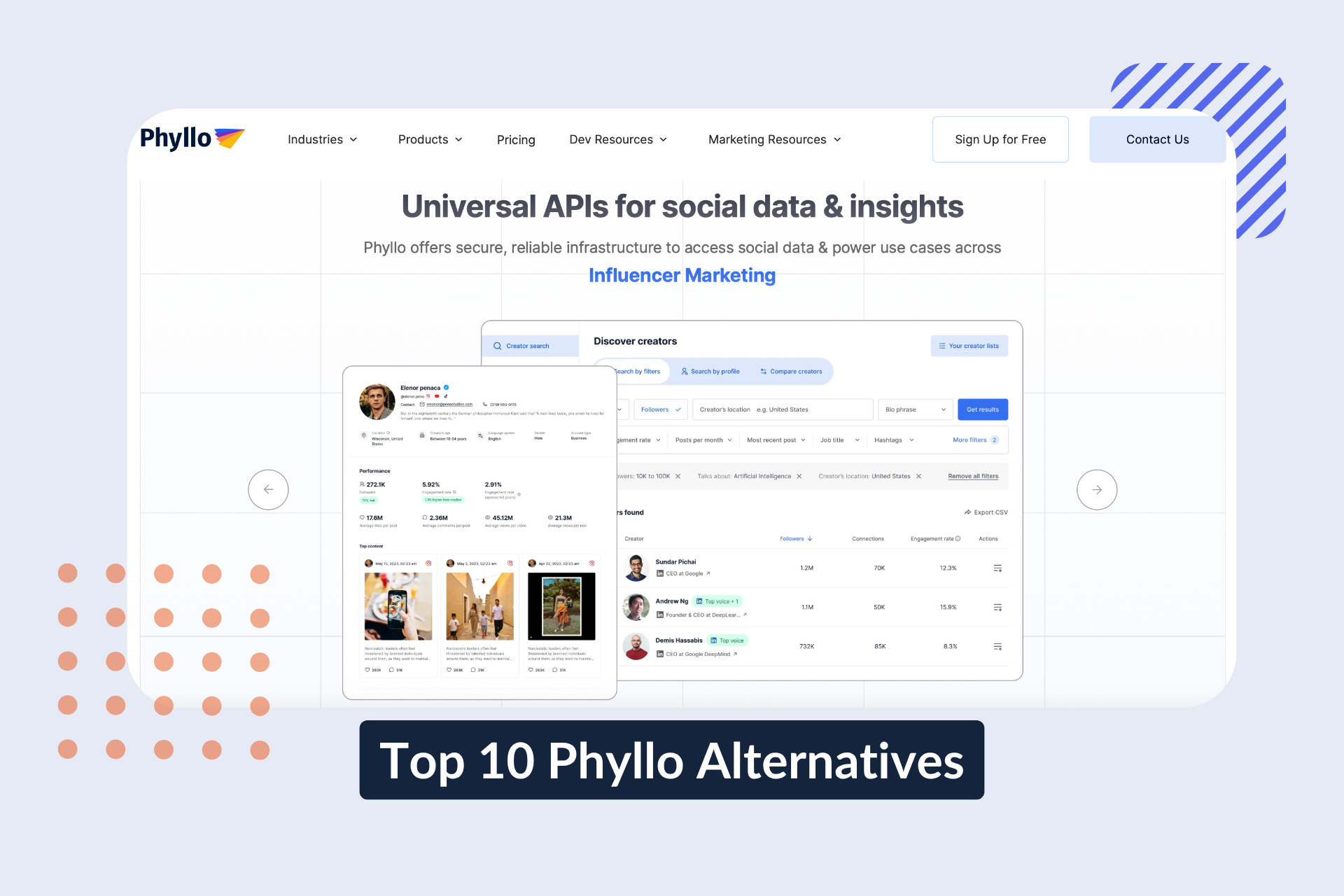





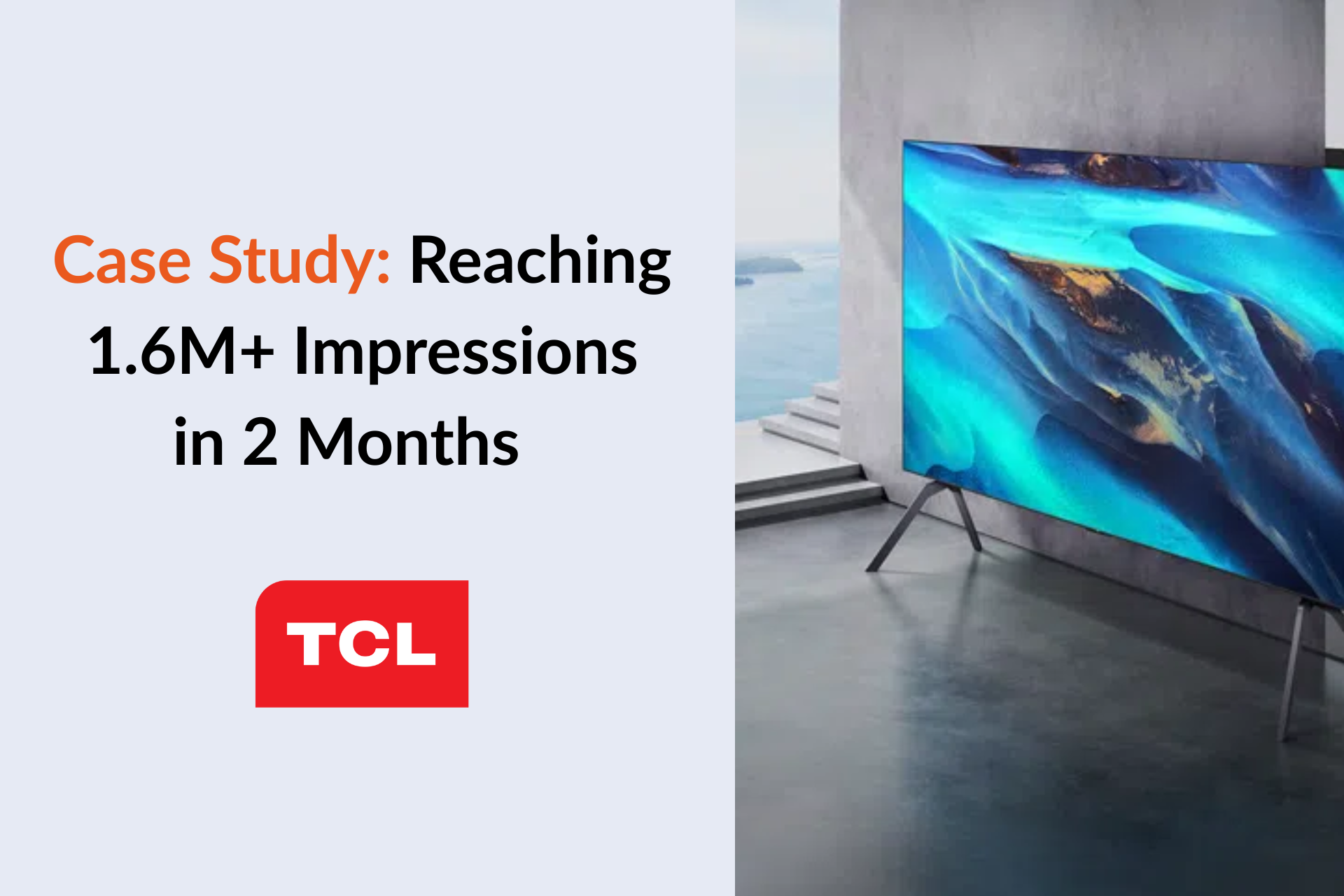
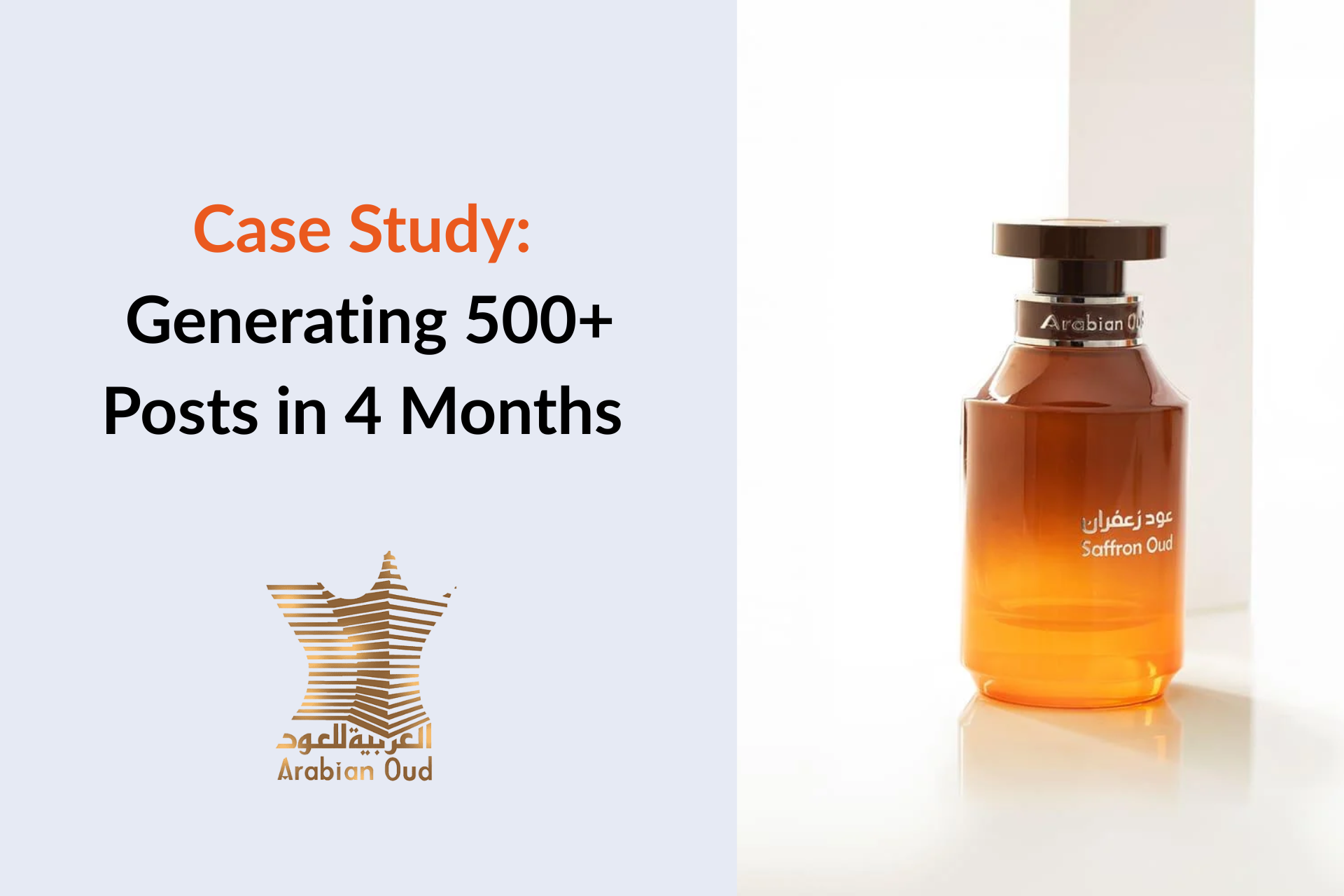







.png)



